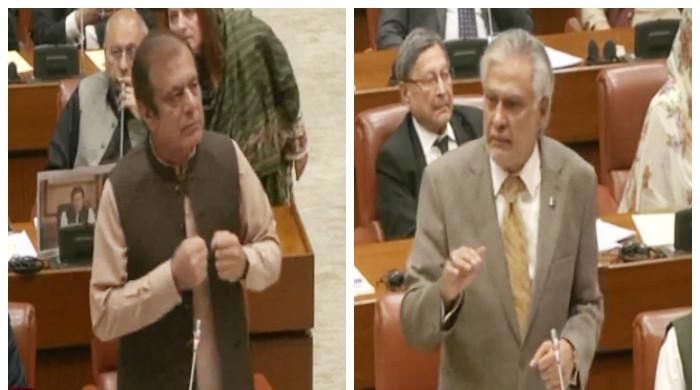Senate Passes Resolution Dismissing Indian Allegations as Baseless
ISLAMABAD: The Senate of Pakistan has unanimously adopted a resolution dismissing India’s accusations linking Pakistan to the Pahalgam incident in Indian Illegally Occupied Jammu and Kashmir (IIOJK). The Senate characterized these allegations as unfounded and politically driven.
The resolution, tabled during a Senate session, strongly condemned all manifestations of terrorism and underscored that the targeting of innocent civilians is antithetical to Pakistan’s fundamental principles.
Furthermore, it denounced India’s orchestrated propaganda efforts and unilateral suspension of the Indus Waters Treaty, deeming it a transgression that could be construed as an act of aggression.
The resolution asserted Pakistan’s complete readiness to safeguard its sovereignty and territorial integrity against any form of aggression.
It reaffirmed Pakistan’s steadfast support for the right to self-determination of the Kashmiri people and demanded that India be held accountable for its acts of terrorism and targeted killings abroad, including those committed on Pakistani soil.
The resolution was a response to India’s independent and unwarranted measures against Pakistan, which followed the deadly shooting in the occupied valley.
New Delhi has halted a water-sharing agreement, declared the closure of the primary land border crossing with Pakistan, lowered diplomatic ties, and revoked visas for Pakistani citizens.
In response, Pakistan has mandated the expulsion of Indian diplomats and military advisors, invalidated visas for Indian nationals, excluding Sikh pilgrims, and closed the main border crossing from its side.
The United Nations (UN) has appealed to both Pakistan and India to exercise “maximum restraint,” emphasizing that all issues between the two nations should be resolved amicably through constructive mutual dialogue.
Deputy Prime Minister and Foreign Minister Ishaq Dar informed the House that India had indirectly alluded to Pakistan without providing any substantiating evidence, adding that India’s unsubstantiated narrative had been politically anticipated.
Dar also apprised the House of the decisions made during the National Security Committee meeting. He announced that all Indian nationals present in Pakistan on SAARC visas must depart within 48 hours and emphasized Pakistan’s unified political stance in its response.
He disclosed that briefings were conducted for 26 countries yesterday, with additional briefings scheduled for today. He also shared that Saudi Arabia’s foreign minister had requested a conversation slated for 7 p.m.
Dar reiterated that Pakistan’s armed forces are “fully prepared” and cautioned that any hostile action would be met with a decisive response, mirroring previous retaliatory measures. He clarified that the Indus Waters Treaty cannot be unilaterally revoked, as it requires consensus as per the agreement.
He emphasized that water is crucial for 240 million Pakistanis, and the National Security Committee has already designated the threat of water denial as equivalent to an act of war.
Leader of the Opposition in the Senate, Shibli Faraz, stated that the resolution conveys a united message to adversaries. He criticised India’s ongoing endeavors to discredit Pakistan, emphasizing that these attempts have been unsuccessful. He advocated for India to be held accountable internationally for promoting terrorism, including within Pakistan.
Faraz questioned how such a significant incident could occur under the observation of over 750,000 Indian troops in Kashmir and highlighted India’s history of opposing Pakistan in every international forum.
Pakistan Peoples Party (PPP) Senator Sherry Rehman stated that the water terrorism being perpetrated by the Modi government was also a desire during Modi’s first term.
She emphasized that India had already rendered the Indus Waters Treaty ineffective last year and that Modi has long sought to paralyze the agreement.
Rehman cautioned that should India persist down this path, it should bear in mind that its rivers also originate from other countries. She remarked that if Modi aims to revert the region to the era of global conflicts, no one will back down.
She added that Pakistan had attempted to engage India in discussions regarding terrorism, but India did not respond. Concluding her remarks, she asserted that if India intends to test the resolve of Pakistan’s people and armed forces, they will find them as resolute as a “wall of steel”.
“We did not militarise this region, you did. Even today, your military formations stand against Pakistan. The majority of your military formations are against Pakistan. You have an obsession with Pakistan. We certainly do not have any obsession with you,” the PPP senator said.
During the Senate session, Awami National Party (ANP) President Aimal Wali stated that war benefits no one. He pointed out that both countries possess sufficient power to completely destroy each other.
He urged those in India who desire peace, adhere to principles of non-violence, and oppose extremism to voice their dissent against war. He underscored the significance of promoting the message of peace for the sake of both countries and their peoples.
Wali offered his assistance in any dialogue process and expressed his willingness to travel for Pakistan if authorized. He affirmed his dedication to participating in meaningful discussions, aiming to cultivate an environment of brotherhood.
He reiterated the desire for cordial relations with India, China, Afghanistan, and Iran. He maintained that even if others attempt to destabilize this environment, Pakistan should abstain from doing so, as it would ultimately be detrimental to the nation.
He emphasized that the message of peace must be conveyed with the country’s welfare in mind.
Wali inquired about the closure of the Wagah Border while the Kartarpur Corridor remains accessible. He questioned whether authorization had been granted for visits to Ajmer Sharif, and if not, why Kartarpur was being treated differently.
He concluded that if closures are necessary, all routes should be closed equitably.



Comments (0)
No comments yet. Be the first to comment!
Leave a Comment